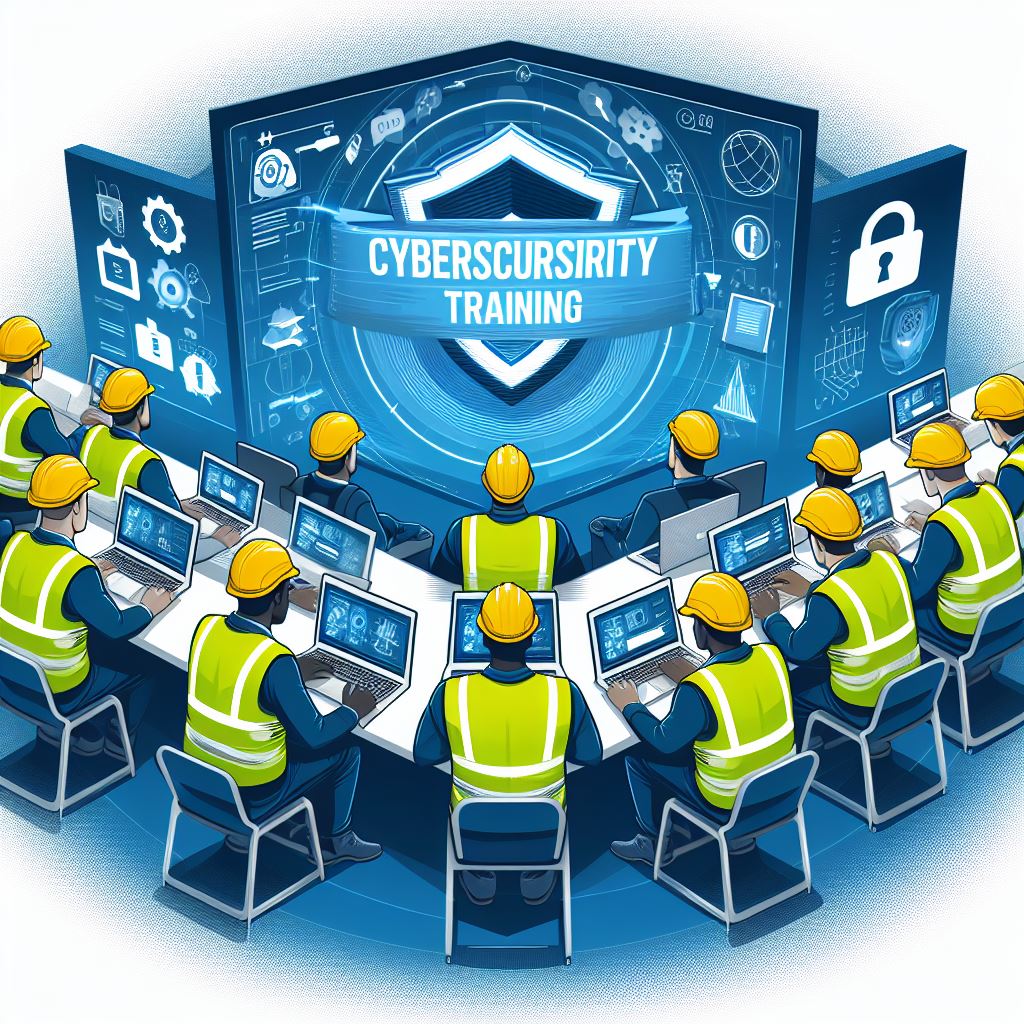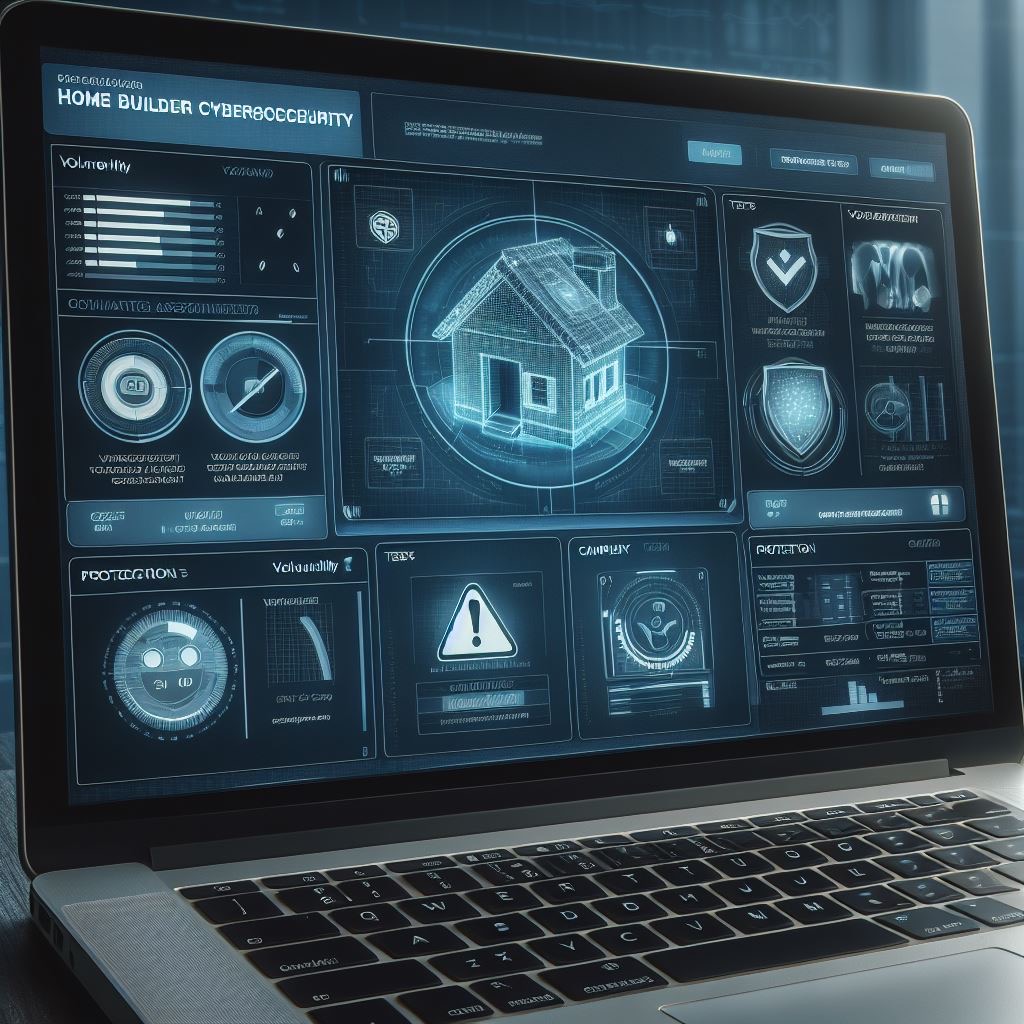
Defying All Odds - Day 18: The Role of Employee Training in Construction Company Cybersecurity
“You have to be prepared to fight and finish your own battles.” - Jim Harbaugh
Introduction:
Employees play a significant role in strengthening cybersecurity within construction companies. In this article, we will explore the importance of employee training in construction company cybersecurity. We will discuss the benefits of cybersecurity training, key training topics to cover, and strategies for creating a culture of cybersecurity awareness. By investing in employee training, construction companies can empower their workforce to identify and respond to cyber threats effectively, reducing the risk of security incidents and enhancing overall cybersecurity resilience.
In our featured story, we talked about how ZATIS helped a construction company defy the odds and win in the battle against hackers and cybercriminals. Join us today as we discuss the role and importance of employee training in a construction company's cybersecurity.
The construction industry is not immune to cyber threats, and the consequences of a security breach can be severe. From financial loss to reputational damage, construction companies must prioritize cybersecurity to protect their assets and stakeholders. While implementing technical measures is important, employee training is equally crucial in building a strong cybersecurity foundation.
1. Benefits of Cybersecurity Training:

a. Increased Awareness:
Cybersecurity training helps employees understand the risks and threats they may encounter in their daily work. It raises awareness about the importance of protecting sensitive information and the potential consequences of a security breach.
b. Improved Security Practices:
Through training, employees learn best practices for securing their devices, creating strong passwords, and identifying potential phishing attempts. This knowledge enables them to take proactive measures to protect company systems and data.
c. Prompt Incident Response:
With proper training, employees can recognize and report security incidents promptly. This allows the company's IT team to respond quickly, minimizing the impact of a potential breach.
d. Stronger Defense Against Social Engineering:
Social engineering attacks, such as phishing and impersonation, are common in the construction industry. Cybersecurity training equips employees with the skills to identify and thwart these attacks, reducing the risk of falling victim to them.
2. Key Training Topics:

a. Password Security:
Teach employees the importance of creating strong, unique passwords and the significance of regularly updating them. Encourage the use of password managers to securely store and manage passwords.
b. Phishing Awareness:
Train employees to recognize phishing emails and other forms of social engineering. Provide examples of common phishing techniques and educate them about the potential consequences of falling for such attacks.
c. Device Security:
Emphasize the importance of keeping devices and software up to date with the latest security patches. Teach employees about the risks of using public Wi-Fi networks and the need to use secure connections when accessing company resources remotely.
d. Data Protection:
Educate employees about the proper handling and protection of sensitive data. Discuss the importance of encryption, secure file transfer protocols, and secure cloud storage solutions.
3. Strategies for Creating a Culture of Cybersecurity Awareness:

a. Regular Training Sessions:
Conduct regular cybersecurity training sessions to reinforce knowledge and address emerging threats. Encourage employees to ask questions and share their experiences to foster a collaborative learning environment.
b. Ongoing Communication:
Keep employees informed about the latest cybersecurity trends, threats, and best practices through regular email updates, newsletters, or intranet portals. Encourage them to report any suspicious activities or potential security incidents.
c. Recognition and Rewards:
Recognize and reward employees who actively contribute to the company's cybersecurity efforts. This can include acknowledging their vigilance in identifying and reporting potential threats or implementing security measures.
d. Simulated Phishing Exercises:
Conduct simulated phishing exercises to test employees' awareness and response to phishing attacks. Provide feedback and additional training based on the results to improve their ability to identify and mitigate future threats.
By investing in employee cybersecurity training, construction companies can create a culture of cybersecurity awareness and reduce the risk of security incidents. It is essential to regularly assess and update training programs to keep pace with evolving cyber threats and technologies.

The Importance of Proactive Cybersecurity Measures
To mitigate the risks associated with cyber threats, construction companies must adopt a proactive approach to cybersecurity. Implementing robust cybersecurity measures can help protect the company's assets, maintain client trust, and ensure the smooth operation of projects. Here are some key steps that construction companies can take:
1. Employee Education and Training:

Employees are often the first line of defense against cyber threats. Providing comprehensive training on cybersecurity best practices, such as identifying phishing emails and using strong passwords, can significantly reduce the risk of successful attacks.
2. Regular Security Assessments:

Conducting regular security assessments, including vulnerability scanning and penetration testing, can identify potential weaknesses in the company's systems and infrastructure. This allows for timely remediation before cybercriminals can exploit these vulnerabilities.
3. Secure Network Infrastructure:

Implementing robust firewalls, intrusion detection systems, and encryption protocols can help safeguard the company's network infrastructure from unauthorized access and data breaches.
4. Access Control and Authentication:

Implementing strong access control measures, such as multi-factor authentication and role-based access controls, can ensure that only authorized individuals have access to sensitive information.
5. Data Backup and Recovery:

Regularly backing up critical data and implementing a robust disaster recovery plan can help minimize the impact of a cyber-attack and facilitate the restoration of operations.
Conclusion:
In an increasingly digitized world, the construction industry must recognize the importance of cybersecurity and take proactive measures to protect its valuable assets. Neglecting cybersecurity can have severe consequences, including financial losses, reputational damage, project delays, legal and regulatory compliance issues, and loss of intellectual property. By prioritizing cybersecurity and implementing robust measures, construction companies can safeguard their operations, maintain client trust, and ensure their long-term success in an evolving digital landscape.
Want to know if your construction company is at major risk of getting hacked? Click here for a FREE 15-Minute Cyber Consult.

5 Reasons Your Construction Company Needs a Cybersecurity Risk Assessment. 👊
It is important for construction companies to conduct a cybersecurity risk assessment for several reasons:
1. Protection of sensitive data:
Construction companies handle a vast amount of sensitive data, including financial information, project details, client information, and employee records. Conducting a cybersecurity risk assessment helps identify potential vulnerabilities and ensures appropriate safeguards are in place to protect this data from unauthorized access, data breaches, or theft.
2. Mitigating financial losses:
Cyberattacks can result in significant financial losses for construction companies. These losses can stem from data breaches, ransomware attacks, or the disruption of critical systems. By conducting a cybersecurity risk assessment, companies can identify potential weaknesses in their IT infrastructure and take proactive measures to mitigate the financial risks associated with cyber threats.
3. Maintaining business continuity:
A successful cyber-attack can disrupt construction projects, delay timelines, and impact the overall business operations. By conducting a risk assessment, construction companies can identify potential vulnerabilities and implement robust cybersecurity measures to ensure business continuity. This includes having backup systems, disaster recovery plans, and incident response protocols in place.
4. Protecting reputation and client trust:
Construction companies rely on their reputation and client trust to secure new projects and contracts. A cybersecurity breach can undermine trust, damage the company's reputation, and lead to the loss of clients. By conducting a risk assessment and implementing appropriate cybersecurity measures, construction companies can demonstrate their commitment to protecting client data and maintaining a secure operating environment.
5. Compliance with regulations:
Construction companies may be subject to industry-specific regulations and legal requirements regarding data protection and cybersecurity. Conducting a risk assessment helps identify any gaps in compliance and ensures that the company meets the necessary regulatory obligations.
Overall, conducting a cybersecurity risk assessment allows construction companies to proactively identify and address potential vulnerabilities, protect sensitive data, mitigate financial losses, maintain business continuity, protect their reputation, and comply with relevant regulations.
Other resources to help you get started with Cybersecurity
Start your own Cybersecurity initiative:
Here is a quick checklist to get you started with your Cybersecurity initiative. Remember imperfect action beats inaction, get started and keep pushing for progress and awareness with your people.
Update your software
Secure your files
Require passwords
Encrypt devices
Use multi-factor authentication
Protect your wireless network
Make "SMART SECURITY" your business as usual
Require strong passwords
Train all staff
Have a plan